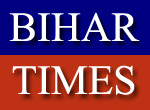New Delhi, Sep 13 (IANS) For one who sold tea as a boy at a railway station in Gujarat, Narendra Modi has had a meteoric rise in Indian politics, catapulting from an untested chief minister of 2001 to the prime ministerial candidate in just 12 years.
Wedded to Hindutva - or the ideology of Hindu nationalism - from a young age, the 62-year-old Gujarat strongman, who evokes emotions like no other politician, is uncompromising vis-à-vis his goals, with an ability to transform every adversity into an opportunity, colleagues say.
He became the first 'pracharak' (campaigner) in Hindu rightwing politics to become a chief minister in only 13 years, taking control of one of India's most developed states though he had no administrative experience until then.
But in his long political innings, his biographers and critics have accused Modi of dumping those who helped him to go up the ladder. The latest in the list is Lal Krishna Advani, who as a star of the Bharatiya Janata Party (BJP) mentored Modi even when he was virtually unknown.
Political analyst G.V.L. Narasimha Rao, who knows Modi intimately, told IANS: "He is a man of firm conviction. He is extremely honest and hard working. He is not given to compromises, whatever the consequences. And Modi will never bend even for the sake of a temporary victory."
In complete contrast to now, Modi's early life was unremarkable.
Born into an ordinary lower middle class family in Mehsana district in Gujarat Sep 17, 1950, he was the third of four children. His father, Damodardas, made tea at a small shop. The son would take it in a kettle to sell it to train passengers at the Vadnagar railway station.
The family house was poorly ventilated and got little natural light, the sole kerosene lamp only adding to smoke and grime. Those who have known him say he was an average school student.
By his own admission, he was a devout Hindu who for over four decades has fasted during Navratri taking only water.
According to biographer Nilanjan Mukhopadhyay, Modi married young but the marriage was unconsummated. He kept the wedding a secret because otherwise he would not have become a 'pracharak' in the puritan Rashtriya Swayamsewak Sangh (RSS).
Modi displayed skills at oratory even in school. He would often disappear from his family for months, staying in isolated places or wandering in the Himalayas. Once, he camped in a small Hindu temple in the Gir forest. He decisively broke away from his family in 1967.
Modi formally joined the RSS after the 1971 India-Pakistan war.
He moved to the RSS office in Delhi where his chores included, after waking up at 4 a.m., cleaning the office, making tea as well as breakfast and evening snacks for senior colleagues, and replying to mails. He would also clean utensils and sweep and clean the entire building.
Modi even washed his own clothes.
When Indira Gandhi declared emergency rule and jailed political foes, Modi - back in Gujarat by then -- went underground, tirelessly crisscrossed places on a Bajaj scooter, occasionally disguised, and printed and sent booklets against the central government to Delhi.
Even as he embraced politics, Modi graduated in political science from Delhi University and went on to do his Masters from Gujarat University.
Modi won the admiration of seniors for his hard work and efficiency. In 1987-88, he was deputed to the BJP's Gujarat unit as organizing secretary, marking his formal launch in mainstream politics.
Modi slowly took control of the BJP across the length and breadth of Gujarat, interacting intimately with activists, and played a key role in 1990 when Advani took out his Rath Yatra (chariot march) from Somnath to Ayodhya, an event that catapulted the BJP on to the national stage like never before.
Modi organised Murali Manohar Joshi's Kanyakumari-Srinagar Ekta Yatra (Unity March) in 1991 when Joshi was the party president.
But even as he gained political clout, he had his detractors. In 1992 he was sidelined in the Gujarat BJP. Seniors like Keshubhai Patel, Shankersinh Vaghela and Kanshiram Rana resented Modi's rise. He was said to boss over others. Over time, Modi was accused of exploiting differences among other leaders to his own benefit, eventually replacing Chief Minister Patel - whose confidant he was earlier -- in 2001.
Modi's present day identity is largely influenced by the 2002 communal violence when his government was widely blamed for conspiring with Hindu rioters against Muslims, over 1,000 of whom died in that carnage. The charge has stuck for over a decade.
Modi faced the prospect of being sacked only after a few months in office as then prime minister Atal Bihari Vajpayee was deeply anguished over the Gujarat violence. But Advani came to Modi's rescue. Modi later led the party to a remarkable win in 2002 - and has never looked back.
Over time, Modi became a symbol of development and the party's ability to deliver good governance. Large sections of the middle class began to root for him, especially for his I-can-do attitude and his resolve to fix the ills of the nation plaguing by multiple problems, including a languishing economy.
That was enough for the BJP, out of power for a decade, to prop up the determined Modi as its election campaign chief in June and, on Friday, as its prime ministerial candidate.
|

